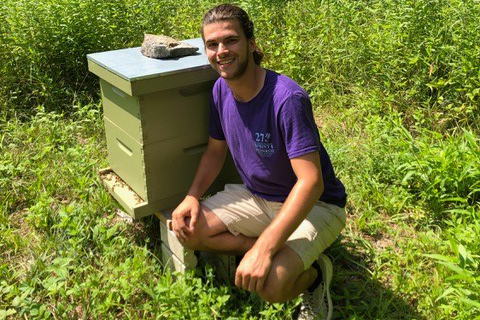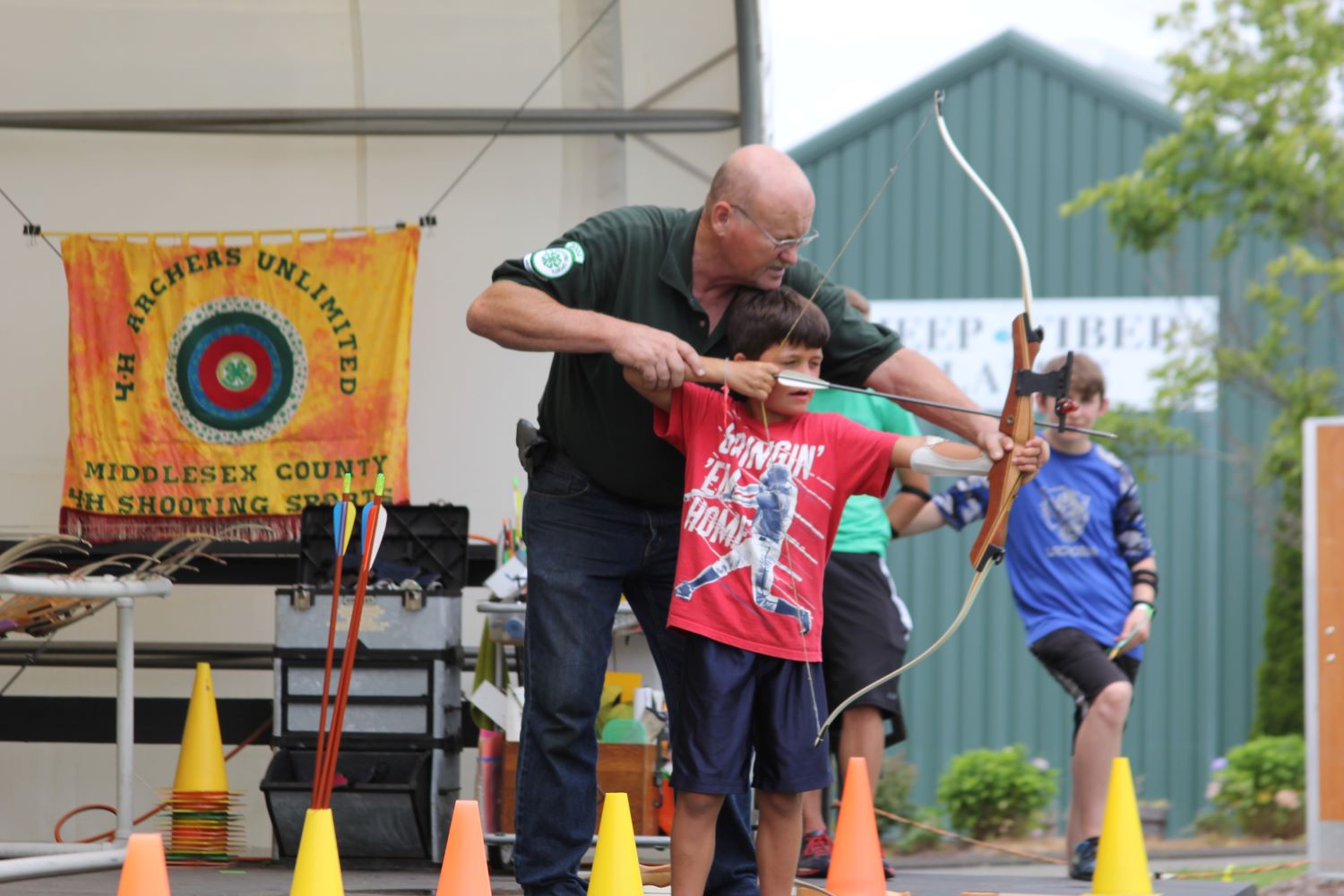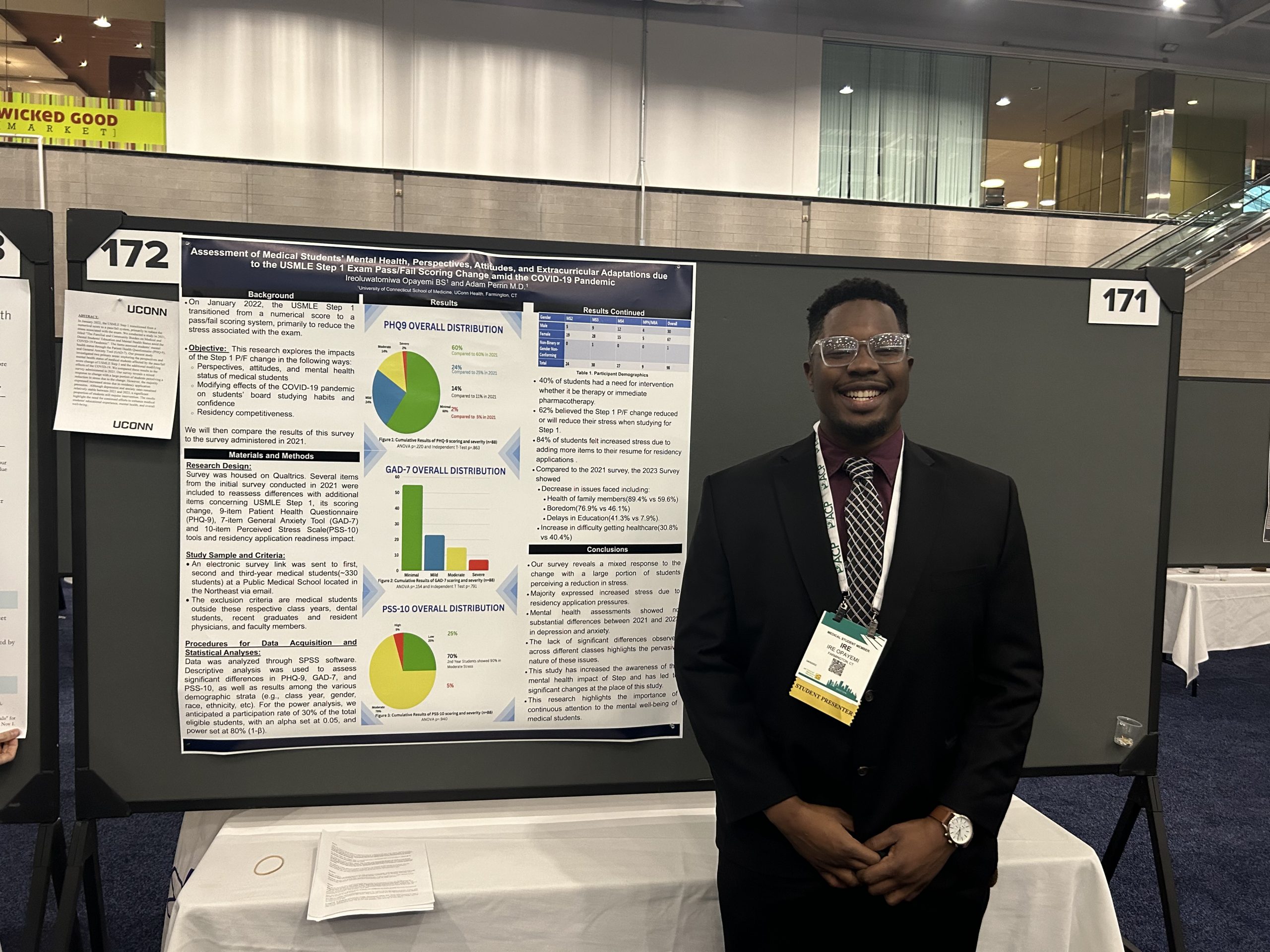Daniel Mitola has taken an interesting educational path, merging his love for both writing and the natural world. He’d love to pursue a career that includes sustainable vegetable production and beekeeping, while writing about his adventures. Read more about his experiences as a UConn student.
What attracted you to the UConn College of Agriculture, Health and Natural Resources?
I actually started out at UConn as an English major. My favorite books were those by transcendentalists such as Thoreau, which spoke of a life intertwined with nature as opposed to separate from it. From this, I always wanted to learn more about agriculture and growing food, so my first semester freshman year I took vegetable production with Dr. Berkowitz. This class is what really hooked me into joining the Sustainable Plant and Soil Systems (SPSS) major, especially the class field trips to various farms in the area. Without that class, I don’t think I would be where I am now. I still am an English major as well as an SPSS major, and love the different perspectives from each.
Why did you choose your major?
I chose SPSS because it would allow me to learn about plants and growing food from a systems approach and through experiential learning. I chose to concentrate on sustainable agriculture in particular because I could learn the most about agriculture out of the three concentrations offered in the major. I’ve always loved the concept of growing my own food, starting with a vegetable garden I had back home before I came to UConn. As I said earlier, what really sold the idea of devoting my education to agriculture was visiting all the farms in vegetable production and seeing the type of life I could lead. Throughout my studies, I’ve learned much more about sustainable agriculture and the struggles in the industry as a whole, and now realize that there’s much more to the field than an idyllic life. In order to effectively solve problems in the field, we have to educate people as much as possible, which starts on the individual level.
Which one of your UConn activities, internships or jobs was the most memorable? Why?
Without a doubt the most memorable part of being at UConn is my involvement at Spring Valley Student Farm. I’m one of the student farmers who lives there, and I do not know what my life would look like without this experience. For one, I get to be a little more removed from campus than most people. This helped me tremendously because I didn’t vibe well with campus life. By living at the farm, I’m able to get a hands-on approach to learning about agriculture, which my studies would otherwise be lacking in. Not only this, but Spring Valley has provided me with a group of ten other wonderful students to live and learn alongside. Essentially, it has provided me with a community at UConn. To be able to look out my window every morning and see the farm is amazing. I’m able to really see the culmination of all the work that we have put into the farm throughout the year and feel a true connection to the land that I live on. I honestly can say that I don’t think I would be at UConn without living at Spring Valley.
Name two other experiences that have enriched your studies.
One other experience which has enriched my studies at UConn was my participation as a member of the editorial team for UConn’s literary magazine, Long River Review. I got to work with several other students to compile works submitted by UConn students and the greater community into last year’s edition of the magazine. It was an enriching time where I was able to see all the writing talent UConn’s students had to offer and the first time in my studies in English where I worked with a group of other students in such a capacity. I plan to be a part of Long River Review again this coming semester, this time as the poetry panel editor.
Another experience, which goes along with my time at the farm, has been learning about beekeeping. My freshman year I joined the Beekeeping Club at UConn, which started my dive into the world of honeybees. I remember the first time I saw the inside of a honeybee hive I was in awe. I couldn’t believe that they all worked and lived together in the way that they do. When I arrived at Spring Valley in the summer of 2017, the farm needed someone to take on the apiary there—so I decided to learn about the bees. Since then, I’ve been keeping hives at Spring Valley for three summers and have become president of the Beekeeping Club. I even keep my own personal hive away from Spring Valley, so my efforts are expanding. I never knew I would go into the world of insects as much as I have, but beekeeping was the start. I now am taking general entomology and am a fellow for the Integrated Pest Management Fellowship Program at UConn, which would not have happened without my first interest in the honeybees. They’ve definitely changed my life for the better. Not only did they provide me these opportunities, but they gave me something to feel truly responsible for. I would say they’re my rock.
What has been the biggest challenge in your UConn career?
The biggest challenge in my UConn career hasn’t been related to my studies or work. Instead, I would say it has been my struggles with anxiety and depression, which were at their height in my freshman year. Having these struggles can be really crippling if not addressed properly, so my initial time at UConn wasn’t the best. Over time though I made friends who helped me see other positives and moving onto the farm definitely enhanced my ability to cope with these problems. Sometimes when things seem bad, I take a walk down to the Willimantic River, which is at the bottom of the valley, and just sit there for a while. The river is constantly changing, which reminds me that things are never constant, even bouts of anxiety, coming and going with the seasons.
When do you expect to graduate? What then?
My graduation date is a little rocky right now, to be honest. I plan to graduate in either fall of 2020 or spring of 2021. I took a semester off the spring of 2018, to take time for myself and volunteered as an AmeriCorps member with the American Conservation Experience out in the Mojave Desert during that time. So, I’m a semester off schedule, with my original date being spring of 2020. The dual degree adds a lot more credits than a normal plan of study, so I may end up taking my time with another extra semester. So, I can’t really say for sure when I plan to get out of here, but I’m in no rush.
I also am not particularly sure what I expect once I graduate. The only thing I’m certain of is that I’ll want to take a summer to hike the Appalachian Trail. The only problem with that is that I’ll have to find someone to take care of my bees! But I still plan to do it. Hiking the trail has always been something on my bucket list, and the summer right out of school would be a perfect time to do it before I commit to a career or some other activity.
As far as a career goes, I have a whole bunch of ideas. The end goal has always been to have my own vegetable farm, but I know that will probably come after many years when I’ve gotten more experience and have some more money for start-up. I’ve considered graduate school for entomology, but I think that would wait until later in my life as well. Essentially, I have no idea! But that’s okay; I like ambiguity.
Is there anything else you would like us to know about you?
I touched upon it earlier, but I spent some time living out in the Mojave Desert for a program called American Conservation Experience, which is through AmeriCorps. While out there, I did environmental conservation work such as trail building and habitat restoration. The desert is a truly beautiful place to see—one you can’t experience in New England—so I would encourage everyone to take a trip out west to see what there is to see, if they get a chance! I believe the desert is a teacher and that you could learn some of life’s greatest lessons out there if you listen hard enough.



